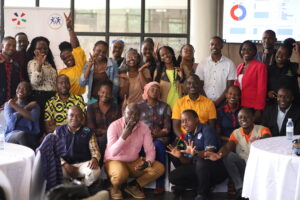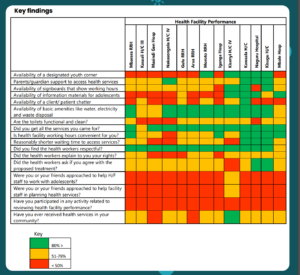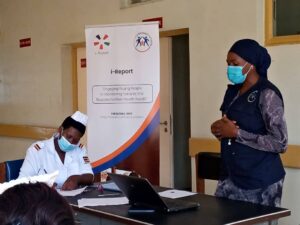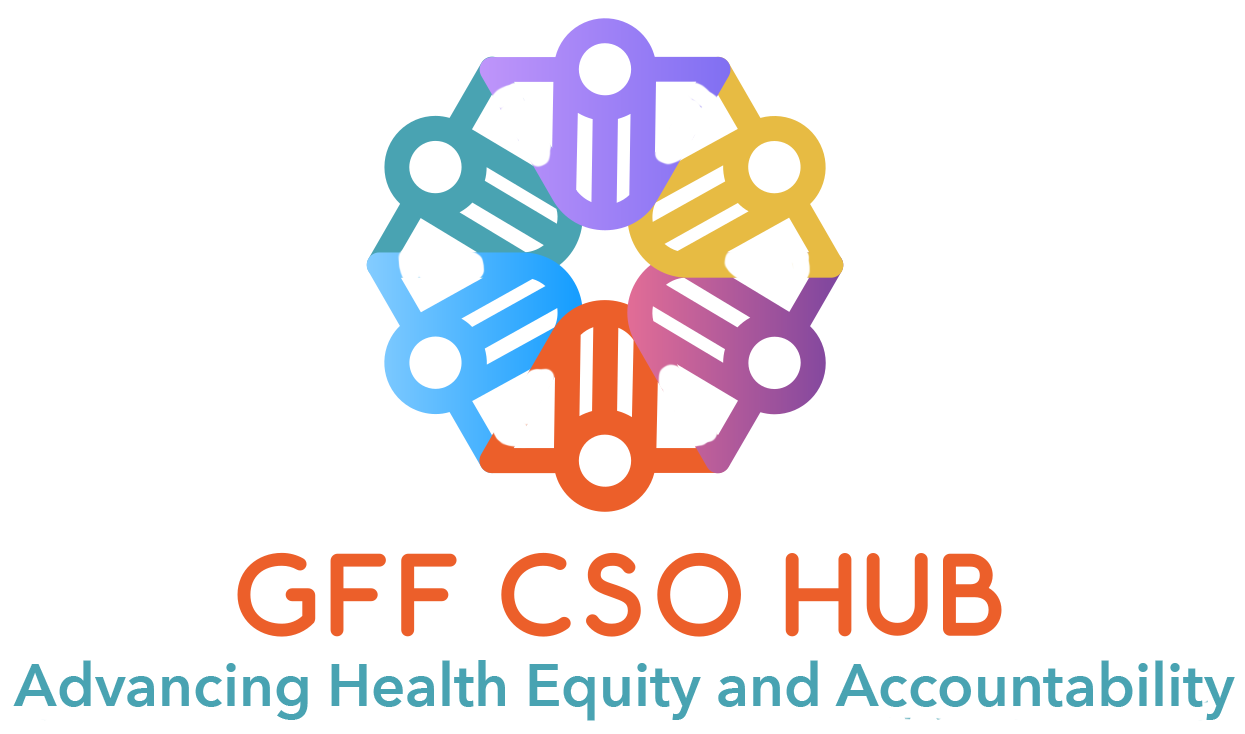Uganda has one of the fastest-growing youth populations in the world, with nearly 78% of its population under 30 years of age. As the country continues to grow, substantial gaps in meeting the sexual and reproductive health (SRH) needs of adolescents and youth, which has led to high rates of unmet need for contraception, unintended pregnancies, maternal mortality and sexually transmitted infections.
To address these challenges, Naguru Young Health Network (NYHN), a youth-led organization based in Kampala, has been working since 2018 to empower young people to advocate for high-quality sexual and reproductive health services.
“Young people’s issues are most times swept under the carpets,” says Arafat Kabugo, the programs manager at NYHN. “They are also rarely consulted and engaged as key stakeholders in designing, implementing and monitoring health services that respond to their needs because it is believed they are less informed and lack capacity to engage in informing key issues.” 
In 2019, NYHN led a three-district pilot of i-Report — an innovative community-led monitoring (CLM) tool that enables young people to develop key indicators and collect data on sexual and reproductive health service delivery. Youth advocates are then able to use the findings to engage decision-makers and providers to improve health services delivery.
Why is CLM important?
CLM engages and empowers community members — including young people — to take the lead in identifying and routinely monitoring the availability and quality of the health services that matter to them. Community members create indicators to track prioritized issues, undergo training to collect data and analyze results, and engage with providers and other stakeholders to share insights from the data to co-create solutions.
 CLM is critical for youth-led social accountability, person-centered care and ensuring that young people have a voice in the decision-making process, all of which can lead to more effective and impactful interventions to improve health services for youth.
CLM is critical for youth-led social accountability, person-centered care and ensuring that young people have a voice in the decision-making process, all of which can lead to more effective and impactful interventions to improve health services for youth.
How does i-Report work?
i-Report is a digital community monitoring platform that encompasses both needs- and rights-based approaches to health. It allows community members and health advocates to express their evolving needs and preferences around health services, demand improved service delivery and systemic reforms, and hold providers accountable for meeting the needs of the communities they serve.
 In 2021, the GFF CSO Hub supported NYHN’s rollout of i-Report in 10 districts across Uganda. Youth monitors conducted more than 400 interviews with young people at health facilities, asking questions about their views on the availability of informational materials for adolescents and whether providers were respectful and accommodating to youth.
In 2021, the GFF CSO Hub supported NYHN’s rollout of i-Report in 10 districts across Uganda. Youth monitors conducted more than 400 interviews with young people at health facilities, asking questions about their views on the availability of informational materials for adolescents and whether providers were respectful and accommodating to youth.
The youth monitors worked with these facilities and other stakeholders to review the feedback from clients, identify key issues or challenges in the data, and discuss how these challenges could be addressed. Together, they developed a joint action plan for improving the quality and accessibility of the services provided at the health point.
What was the impact?
Within six months of using i-Report:
- All 14 health facilities had committed to displaying a patient charter in the waiting areas, up from just one before the intervention.
- Three participating facilities designated spaces for youth, with dedicated health workers to support youth-friendly services.
- One facility now invites youth to participate in monthly department meetings to share ideas.
- Health facilities began posting informational materials on SRHR in multiple languages to improve accessibility.
